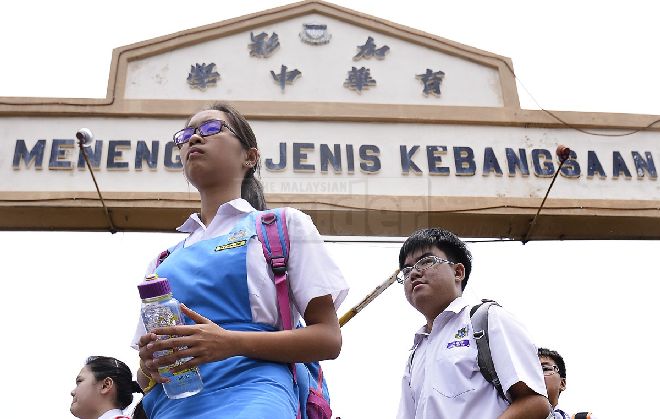The official language of the Federation is Bahasa Malaysia. But ours is a multiracial, multilingual nation, both of which are real strengths. With education one of the foremost issues before the rakyat in advance of GE13, the issue of Chinese education — and its future — is before the nation as a whole as never before.
Although we are a country that officially celebrates its multiracial makeup, Malaysia has not always been perfect in this regard. Datuk Seri Anwar Ibrahim, while Education Minister, launched what could only charitably be called a jihad against Chinese — especially but not exclusively Christian Chinese — schools, marginalising them and placing a host of restrictions, many of which stayed in place throughout his time in Government.
While Tun Abdullah Badawi began the process of reversing this unfortunate tendency to discrimination, it is only recently that much-needed reforms to save a vital part of Malaysia’s vibrant culture began in earnest.
The story begins with Datuk Seri Najib Razak, during his time as Education Minister, when he introduced and pushed through legislation to repeal Section 21(2) of the Education Act 1961, which gave the Education Minister the discretion at “any suitable time [to] convert all national-type primary schools to national primary schools.” Najib has worked to advance vernacular schools since becoming Prime Minister, most recently allocating RM100 million to both Chinese and Tamil schools nationwide in the 2012 budget — record levels of funding, and by significant margins.
Perhaps most importantly of late, the Government has recognised the specific problems faced by Chinese schools and moved to repair those areas of concern. Thus it was that Deputy Education Minister Datuk Dr Wee Ka Siong formed a special committee to meet with Chinese educators, which produced an eight-point plan as a starting point to address long-term concerns.
This plan prioritises the infrastructure of Chinese schools and the provision of teachers fluent in both Mandarin and Bahasa Malaysia or English, dual problems that have faced Chinese schools for decades. For many years, many Chinese schools faced crumbling infrastructure, shortages of teachers fluent in Mandarin (and if not Mandarin, then any other language), and funding problems so severe that many of the schools relied on community funding.
It is to the Government’s credit that it understands the importance of vernacular schools to Malaysia, and is working to correct these problems. The 325 rally put a poor face on Chinese education in particular and vernacular education in general, but DAP-infiltrated events should not be allowed to underestimate the importance of our parallel system of education, nor to understate the importance of an integrated educational system that provides the best of all words to all Malaysians.
Chinese schools — which do not merely educate Chinese, but also Malays, Indians, and others — teach vital lessons of diligence and hard work, lessons that have filtered into the culture at large. It is no accident that so many of Malaysia’s past and present leaders have been educated in Chinese schools, and the traits they learned there carried them in good stead.
They also offer a vital social and linguistic link to the rising economic superpower in the region. The ability to deal with Beijing directly and in Mandarin will be vital not only from an economic perspective, but also as China makes more hegemonic claims to territories in Southeast Asia.
But Najib’s administration has also recognised that Chinese schools must not only be correctly resourced, but also integrated into the greater Malaysian culture. Khairy Jamaluddin recently spoke movingly of the “silos” in which Malay and Chinese students grow up, going to different schools, and graduating into civil service and private business respectively, rarely intermingling with each other. This is why the Government has focused on making Chinese education a part of the budgeting process, and assuring that students are conversant in Bahasa and English as well as in Mandarin (or in some cases, Hokkien).
Faced with these facts, the Opposition has resorted to accusations that BN has decided not to open new Chinese schools (an allegation belied by the opening of new schools in this year alone) and a lack of sincerity (an allegation belied by the historic funding) — and, as always, vague promises that Pakatan Rakyat would somehow do more.
This comes, of course, in spite of the leader of Pakatan being the man most responsible for the attacks on Chinese schools in the last thirty years. Perhaps Anwar has changed in the time since; but as he is always proud of his time in Government, this seems unlikely.
The importance of Malaysia’s parallel education system — one unique in Southeast Asia — is in many ways more important that electoral politics. But at GE13, the rakyat will need to decide whether the coalition led by the man who has done more than any other for vernacular education is better-positioned to help it move forward than the man who did more than any other to destroy it.

